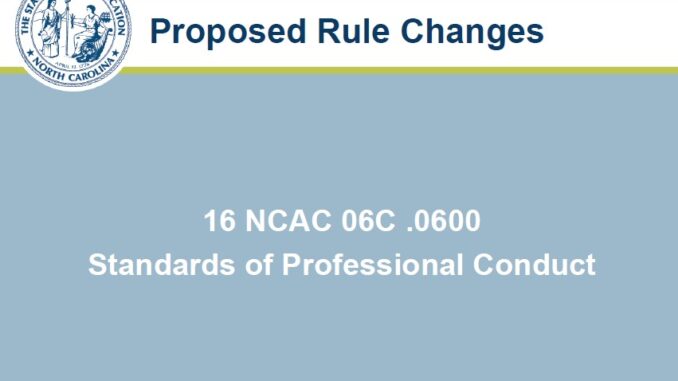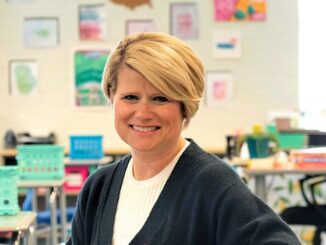
RALEIGH — Changes for rules related to the professional conduct of educators are on the horizon following the January meeting of the State Board of Education.
An overview of policy updates and proposed temporary rules dealing with education employee misconduct and licensure were presented to the board by Assistant General Counsel Ryan Collins.
“The State Board of Education and Department of Public Instruction are committed to prioritizing the safety and well-being of students in North Carolina public schools,” Collins said in an emailed statement to North State Journal. “While the vast majority of professional educators are excellent teachers and role models committed to the success of our students, the recent changes to criminal laws enacted by the General Assembly are intended to deter those few bad actors who might otherwise seek to take advantage of the students in their care and to ensure administrators in the public school system promptly notify the SBE and DPI of allegations of misconduct.”
“The proposed changes to the SBE administrative rules will give the SBE and the Superintendent of Public Instruction the necessary tools to quickly and effectively respond to a broad array of alleged misconduct by teachers and administrators, and to ensure that our schools are served by passionate, effective, and trustworthy educators,” said Collins.
The board was updated on the increased criminal penalties in SL-2023-128 related to taking indecent liberties with a student or sexual activity with a student as well as an increased penalty on school personnel failing to report certain misconduct by educators to the board and the N.C. Department of Public Instruction (NCDPI).
The new legislation allows the board the authority to adopt temporary rules regarding disciplinary action against teacher licenses and to amend the Standards of Professional Conduct.
Additionally, it was restated to the board that all public school units and not just districts as a whole are required to report specific misconduct to the board within 5 days and report all other types tied to disciplinary action within 30 days.
The General Counsel noted that the Professional Educator Preparation and Standards Commission (PEPSC) had already favorably reviewed the recommended proposed rules last December.
Other proposed changes to license discipline policies include:
- Replacing the existing rules related to the denial, suspension, or revocation of a professional educator license with new policies and rules that would allow greater flexibility in acting on a license in question. Changes will include making sure a licensee knows they might face disciplinary action involving their license if they violate the Standards of Professional Conduct.
- The board would continue to be able to deny a license application and impose wider disciplinary sanctions “instead of just suspending or revoking a license,” as well as being able to “summarily suspend” a license when necessary.
- Better definition of “solicitation” or “encouragement” of a romantic, physical, or sexual relationship with a student.
- Clarification that educators can’t take gifts as a “quid pro quo.”
- Reinforces the board’s obligation to report certain disciplinary sanctions and voluntary surrender of a license to the teacher license clearinghouse, NASDTEC.
New rules would codify giving an educator notice of a revocation with 10 days to challenge it and set up a process for license reinstatement requests or reconsideration of a license application denial. A reinstatement or reconsideration request would have a minimum 12-month waiting period.
The proposed temporary rule changes are undergoing a public comment period through Feb. 9. Adoption of the rules would happen at the board’s meeting on March 7 and go into effect by April 8.

